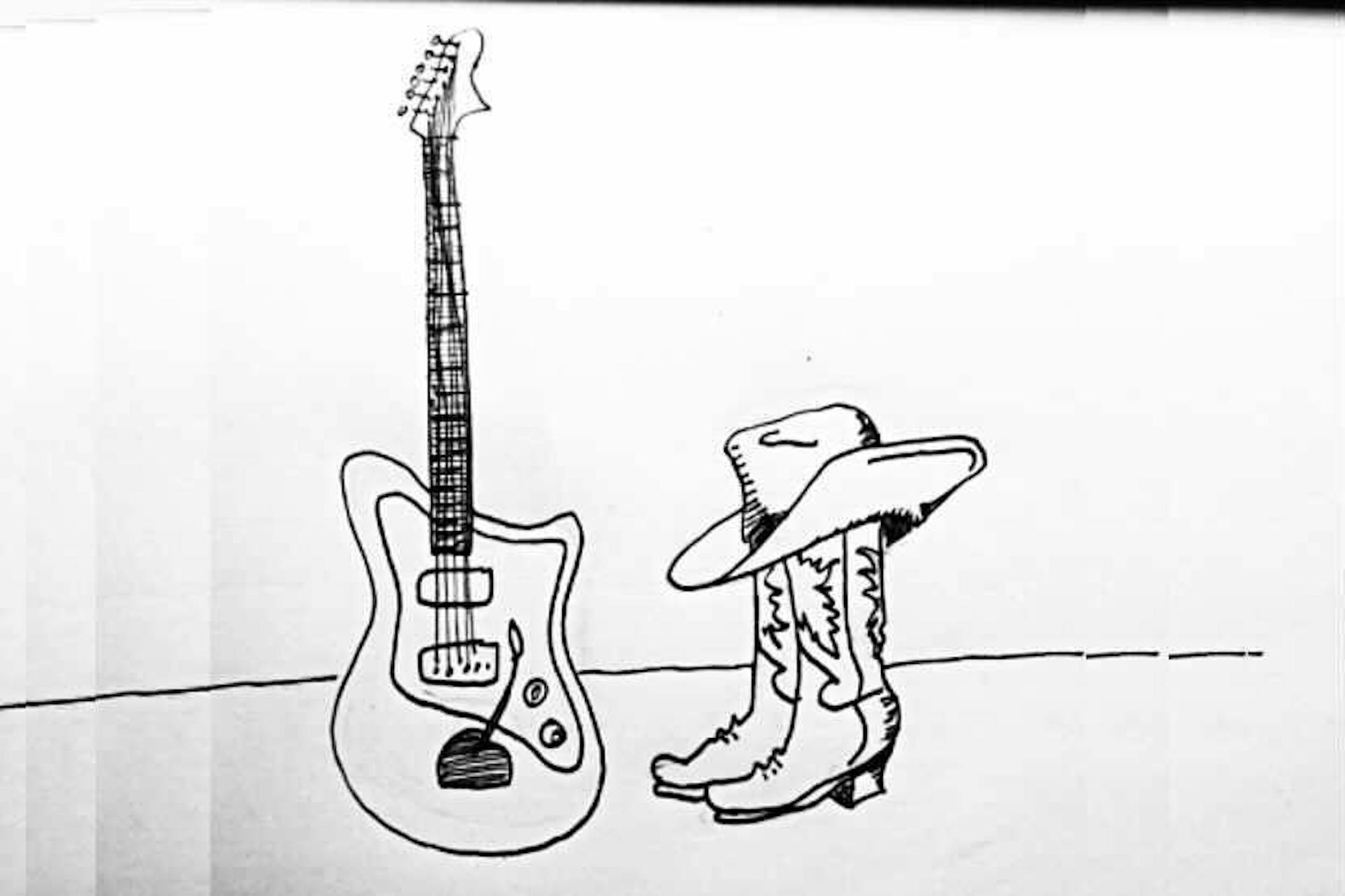Since the release of his debut album in 2015, Chris Stapleton has made a name for himself in country music — opting for the grit and rough edges of the genre’s earlier days rather than the bikinis and pickup trucks of its pop iteration. Gifted with masterful songwriting and a powerful voice, Stapleton knows how to write an affecting song and drive home its emotions with his distinctive, raspy tone. With his fourth solo album, “Starting Over” — which debuted in November — Stapleton has truly mastered his craft, tugging at heartstrings with the lyrics of one song and excoriating your soul with his vocals on the next.
In the first two songs on the album, “Starting Over” and “Devil Always Made Me Think Twice,” Stapleton demonstrates the power of his lyrics and vocals. Opening “Starting Over” with, “Well the road rolls out like a welcome mat/To a better place than the one we’re at,” Stapleton evokes feelings of hope and sadness simultaneously. In the chorus, Stapleton sings, “Wherever we are is where I wanna be,” backed by the soothing voice of his wife, Morgane Stapleton. Despite the weighty lyrics, the acoustic guitar feels light and breezy, making for a quaint beginning to the album.
On the next track, “Devil Always Made Me Think Twice,” Stapleton showcases the other side of his musical talent. The electric guitar blasts through louder and bolder than the acoustic guitar of the previous track, and Stapleton’s vocals on the first verse sound restrained and ominous. Stapleton sings much more forcefully, straining his voice in the chorus to roar, “Jesus tried to steer me in the right direction/But the devil always made me think twice.” With only the first two songs of the record, Stapleton proves his mastery of both restraint and abandon.
Many of the best songs on “Starting Over” follow in the mold of “Devil Always Made Me Think Twice.” The third track, “Cold,” starts deceptively slowly, with only a few piano chords. When Stapleton begins to sing, his vocals are slow and weighty. It’s not until the chorus that he finally lets loose, shouting more than singing. The crushing subject of the song is complemented by the icy strings. Combined with Stapleton’s harsh vocals, these strings make an otherwise downtempo song feel massive.
The fifth track, “Arkansas,” matches the energy of “Cold” but channels it into a more jovial song. Over roaring guitars, Stapleton details a road trip to Arkansas. With a raspy firmness about his voice, Stapleton sings, “Gotta get down, gotta get down to Arkansas/Havin’ so much fun that it’s probably a little bit against the law.” The lyrics themselves are playful, but it’s Stapleton’s vocal delivery that really sells his infectious enthusiasm for the state of Arkansas. Overall, this song is a pleasure to listen to.
Perhaps the strangest track is “Hillbilly Blood,” with its foreboding guitars and sparse instrumentation in the first verse. Stapleton stretches his voice to the limits in the chorus as he sings about his hillbilly heritage. Due to its complex chord structure and robust vocals, “Hillbilly Blood” is the most unique country song I’ve heard in a long time.
Stapleton merges poetic lyrics with righteous anger on the twelfth track, “Watch You Burn.” Recalling the 2017 Las Vegas shooting at the Route 91 Harvest music festival, Stapleton opens with the line, “Only a coward would pick up a gun/And shoot up a crowd tryna have fun.” The song is filled with religious references, as Stapleton promises mass shooters that someday, “Devil gonna watch you burn.” These religious references to hell are complemented by a gospel choir singing in the background, providing an aura of biblical fury and retribution. The harsh tone of the vocals and uncomfortable subject matter exhibited through the lyrics make this song one of the most affecting on the album.
The eighth track, “Maggie’s Song,” creates similarly powerful emotions despite the restrained vocals and instrumentation. This song recounts the story of Stapleton’s dog Maggie, who he found abandoned in a shopping cart. Stapleton describes Maggie’s life and death in moving detail, recounting his love for Maggie so sincerely that he sings of her death, it feels absolutely crushing. The simplicity of the music allows the listener to focus on Stapleton’s storytelling, enhancing the emotional effect of his lyrics. Despite its instrumental restraint, “Maggie’s Song” has just as much bite as “Cold” or “Watch You Burn.”
The penultimate track, “You Should Probably Leave,” tells the story of a man fighting a losing battle against the temptation to sleep with a woman. The song’s vocal melody is incredibly catchy, and the guitar is simultaneously bright and melancholy. More than any other on the album, this song evokes the wistfulness of its lyrics with the instrumentation.
“Starting Over” also contains three covers: “Joy of My Life,” written by John Fogerty, as well as “Worry B Gone” and “Old Friends,” both written by Guy Clark. All three of these are good songs, but they do not fit the album particularly well. None of them feature Stapleton’s signature lyrical style or exhibit Stapleton’s vocals in an interesting way. While all three are nice to listen to, it would have been best if they were left off of the album, especially considering its 54-minute length.
The album closes with “Nashville, TN,” Stapleton’s bittersweet goodbye to the city that made him famous. Beginning with a signature Nashville twang on the guitar, Stapleton sings, “So long, Nashville, Tennessee/You can’t have what’s left of me/And as far as I can tell/It’s high time, I wish you well.” While he does not stretch his voice to the limit as he does in some songs, the melancholy in Stapleton’s vocals is palpable. Assisted once again by his wife, Stapleton bids farewell to the town he called home and this album at the same time. As Stapleton moves on to new adventures in new places, he ends the album fittingly entitled “Starting Over.”




